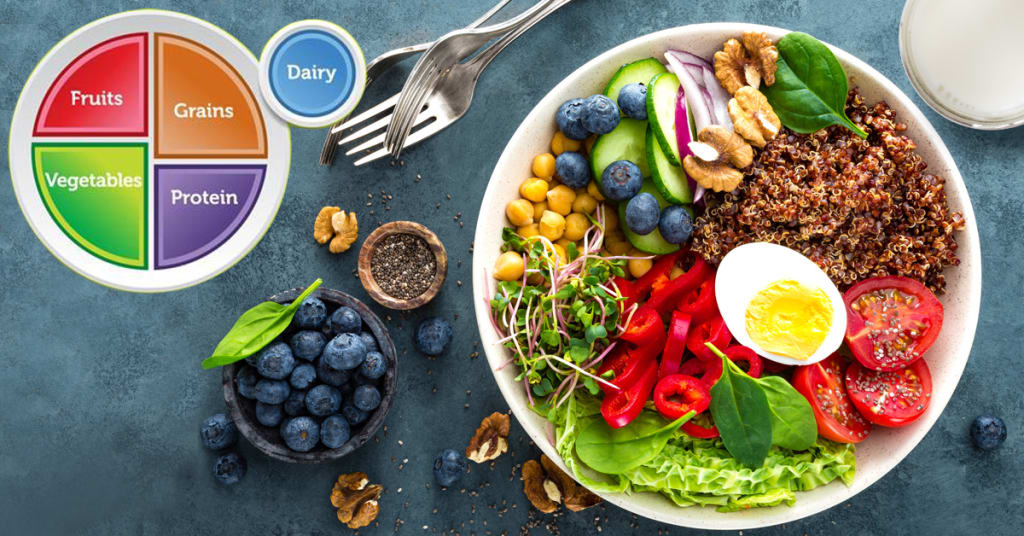Can you Maintain a Healthy Diet Without Supplements?
Exploring the Benefits and Drawbacks of a Whole Food Diet

Maintaining a healthy diet is an essential part of overall wellness, but with so many supplements and nutrition products on the market, it can be hard to know if we truly need them or if we can achieve optimal health through whole foods alone. In this article, we'll explore the benefits and drawbacks of a whole food diet and discuss how you can maintain a healthy diet without supplements.
What is a Whole Food Diet?
A whole food diet is one that prioritizes consuming whole, unprocessed foods that are as close to their natural state as possible. This includes vegetables, fruits, whole grains, lean proteins, nuts, and seeds. The idea behind a whole food diet is to fuel the body with nutrient-dense foods that provide essential vitamins, minerals, and other nutrients that the body needs to function optimally.
Benefits of a Whole Food Diet
There are many benefits of a whole food diet, including:
Improved Nutrient Absorption - When we consume whole foods, our bodies are better able to absorb the nutrients they provide. This is because whole foods are typically higher in fiber and other beneficial compounds that help the body absorb and use nutrients more efficiently.
Reduced Inflammation - Whole foods are also rich in anti-inflammatory compounds that can help reduce inflammation throughout the body. This is important because chronic inflammation has been linked to a range of health issues, including heart disease, diabetes, and cancer.
Better Digestion - Whole foods are also easier for the body to digest because they are typically free from added sugars, preservatives, and other additives that can disrupt the digestive process.
More Sustainable - Eating a whole food diet is also more sustainable because it prioritizes consuming foods that are in season and locally grown. This helps reduce the carbon footprint of our food choices and supports local farmers and growers.
Drawbacks of a Whole Food Diet
While there are many benefits to a whole food diet, there are also some potential drawbacks to consider:
Cost - Whole foods can be more expensive than processed foods, which can make it difficult for some people to afford a whole food diet.
Time - Preparing whole foods can also be more time-consuming than simply grabbing a pre-packaged snack or meal, which can be challenging for people with busy schedules.
Accessibility - Depending on where you live, it may be challenging to find a wide variety of whole foods, especially if you don't have access to a local farmer's market or specialty grocery store.
Tips for Maintaining a Healthy Diet Without Supplements
If you're interested in maintaining a healthy diet without supplements, there are several steps you can take:
Eat a Variety of Whole Foods - Eating a wide variety of whole foods ensures that you're getting a range of essential nutrients that your body needs to function properly. This includes fruits, vegetables, whole grains, lean proteins, and healthy fats.
Plan Your Meals - Planning your meals ahead of time can help you ensure that you're eating a balanced diet that meets your nutritional needs. This can also help you save time and money by avoiding last-minute trips to the grocery store or take-out meals.
Prioritize Quality - When shopping for whole foods, prioritize quality over quantity. Look for foods that are in season, locally grown, and free from additives, preservatives, and other harmful chemicals.
Drink Plenty of Water - Staying hydrated is important for overall health and can help support digestion, energy levels, and mental clarity. Aim to drink at least 8 glasses of water per day, and more if you're physically active or live in a hot climate.
Consider Food Combining - Some foods are better absorbed and digested when eaten together. For example, pairing vitamin C-rich foods (like citrus fruits) with iron-rich foods (like spinach) can help improve iron absorption. Similarly, eating healthy fats (like avocado or nuts) with fat-soluble vitamins (like vitamin A or D) can help improve their absorption.
Listen to Your Body - Pay attention to how different foods make you feel. If you notice that certain foods make you feel bloated, lethargic, or otherwise unwell, consider eliminating or reducing them from your diet. On the other hand, if you feel great after eating a certain food, continue to incorporate it into your diet.
Get Plenty of Sleep - Getting enough sleep is essential for overall health and can help support a healthy diet. Lack of sleep can disrupt hormones that regulate appetite and metabolism, leading to cravings for unhealthy foods and weight gain.
Conclusion
Maintaining a healthy diet without supplements is possible by eating a variety of whole foods, prioritizing quality, and listening to your body. While supplements can be beneficial for certain individuals, they are not necessary for everyone. By focusing on whole, nutrient-dense foods, you can support optimal health and well-being while also enjoying delicious, satisfying meals. Remember to stay hydrated, get plenty of sleep, and make time for physical activity to support a healthy lifestyle overall.
The Ultimate Keto Meal Plan is an excellent resource for anyone looking to maintain a healthy diet without supplements. This meal plan is designed to provide a wide variety of nutrient-dense foods that support a keto lifestyle, which emphasizes healthy fats, moderate protein, and low carbohydrate intake. By following this meal plan, individuals can ensure they are consuming a balanced diet that meets their nutritional needs without relying on supplements.
Like the whole food diet, the Ultimate Keto Meal Plan prioritizes quality ingredients and encourages meal planning and food combining to optimize nutrient absorption and digestion. By providing delicious and satisfying meal options, this meal plan makes it easy to follow a healthy diet that supports overall wellness and can help reduce inflammation, improve digestion, and support sustainable eating habits.
Whether you're looking to maintain a healthy weight, manage blood sugar levels, or simply feel your best, the Ultimate Keto Meal Plan can be a valuable tool in achieving your goals. By incorporating a variety of whole foods and healthy fats into your diet, you can support optimal health and well-being without relying on supplements.





Comments
There are no comments for this story
Be the first to respond and start the conversation.